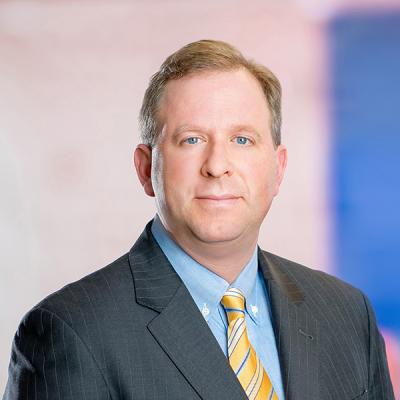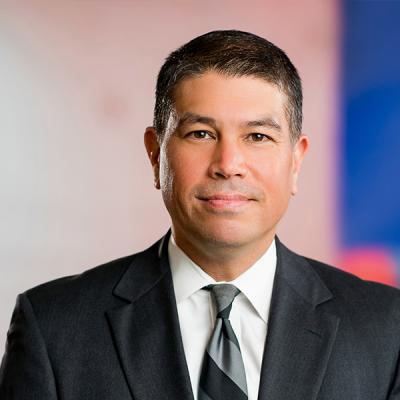Trump Taps David Sacks as AI and Crypto Czar — AI: The Washington Report
- On December 5, incoming President Donald Trump announced that David Sacks would be the “AI and Crypto Czar” under the next administration.
- A prominent venture capitalist, member of the “PayPal Mafia,” and co-founder of an AI company, Sacks is expected to bring a pro-industry stance to the federal government’s oversight of AI. He is likely to oppose regulations to AI that may stifle the emerging technology in its cradle, while also supporting investments in AI R&D.
- Sacks will take on the advisory role part-time while still working at his venture capital fund, and in addition to overseeing AI policy, he will also lead the Trump administration’s approach to cryptocurrency, an industry that he strongly supports and invests in.
On December 5, incoming President Donald Trump announced that David Sacks, a prominent Silicon Valley investor and venture capitalist and co-founder of an AI company, will serve as the “White House AI & Crypto Czar.” In a Truth Social post, Trump said that Sacks “will focus on making America the clear global leader in both areas. He will safeguard Free Speech online, and steer us away from Big Tech bias and censorship.”
Sacks’ appointment is widely viewed as a sign that the Trump administration will fulfill its campaign promises to take a pro-industry, deregulatory stance on AI. Because the AI and crypto role has never existed before, it is unclear how much influence or room to make substantive policy decisions Sacks will actually have in this role or how that function will ultimately be organized in the Trump White House. However, given reporting about his long record of opposing government overregulation and championing emerging technologies, Sacks is likely to advocate, if not helping to implement, deregulating the AI space and potentially investing in AI R&D.
AI Under a Second Trump Administration
During his second administration, Trump is expected to take a pro-industry, deregulatory approach to AI. As we covered, Trump is likely to roll back many of the Biden administration’s AI initiatives due to concerns that they hamper private sector innovation, and he is expected to harness AI in government for national security and defense purposes. Trump will likely also focus on securing American dominance in the AI race against China by enacting protectionary measures against China, and on the domestic front, he may invest in AI R&D and other efforts to stimulate US AI innovation.
While Trump has not revealed specific details about his AI policies and priorities, the people that President Trump surrounds himself with – and what they think about AI – are likely the ones who will add more detail and concrete policies to his administration’s approach to AI.
David Sacks: Silicon Valley Founder and Investor
As the first person who Trump has tapped to fill a role that focuses specifically on AI, David Sacks’ selection signals that the Trump administration is likely to fulfill his campaign promises to take a deregulatory and pro-industry approach to AI.
Sacks has been a prominent figure in Silicon Valley and the tech space for over 25 years. He was part of the “PayPal Mafia” in the early 2000s, serving as the COO of PayPal before he founded a social networking service in 2008. He is an angel investor in many companies, including Facebook and Airbnb. And in 2017, he cofounded Craft Ventures, an early-stage venture capital fund where he has worked since.
Sacks is no stranger to the AI space. In 2021, he cofounded a workspace chat tool, Glue, that is powered by AI. His investment portfolio includes AI and crypto companies, including xAI, Elon Musk’s AI startup.
Sacks’ views on AI
According to reporting, Sacks has a long record of opposing government overregulation and championing emerging technologies. Sacks’ position as an industry insider suggests that he is likely to take a pro-industry approach to AI, one that favors an open AI ecosystem where regulations do not stifle innovation.
Sacks has been outspoken against regulating AI too stringently. He is reportedly against censorship in AI models and has opposed efforts to prevent AI models from being trained with information publicly available on the internet.
Sacks has also been a proponent of harnessing AI technologies for defense purposes. On his podcast, All-In, in April he remarked, “I do want the United States, as an American, to be the most powerful country. I do want us to get the best value for our defense dollars. The only way that’s going to change is if the defense industry gets disrupted by a bunch of startups doing innovative things.”
Sacks and Cryptocurrency
Sacks has also been a prominent advocate of the cryptocurrency space, and his investment portfolio includes cryptocurrency companies and assets. Sacks is credited with reversing Trump’s stance on cryptocurrency. Trump previously called crypto a “scam,” but after Sacks influenced Trump to change his mind on cryptocurrency, the Republican Party made support for cryptocurrency a top priority in the 2024 election.
In Trump’s post announcing Sacks’ appointment, he wrote that Sacks “will work on a legal framework so the Crypto industry has the clarity it has been asking for.” The cryptocurrency industry has largely celebrated Sacks’ appointment, according to initial reporting.
Reaction from Congress
Following the announcement of Sacks’ appointment, Republicans in Congress have also welcomed Sacks’ appointment to the role. Rep. French Hill, who is running for the top spot on the House Financial Services Committee, said that he “look[s] forward to working with David and President Trump on driving our mutual priorities of bolstering innovation and ensuring America is the leader of those groundbreaking technologies.”
Meanwhile, Rep. Ritchie Torres (D-NY) speculated that Sacks’ influence in the new role may be limited. “I welcome his pro-tech tendencies,” Torres said, but “when it comes to crypto, the positions that matter most are the SEC and CFTC,” and “it is unclear to me what impact a crypto czar would have on crypto policy.”
Approach to AI
It is useful to look at how the Biden administration approached issues that cut beyond individual agencies as either a roadmap for the Trump administration—or a structure that the new administration will inherently avoid.
For example, the Biden administration’s legacy on competition issues will largely be defined by its “whole-of-government” approach to increasing competition, one that has involved input and action from various federal agencies, not just the Federal Trade Commission. Biden appointed a competition czar, Tim Wu, within the Domestic Policy Council inside the White House, to help orchestrate a new, aggressive approach to competition policy, which has involved regular Competition Council meetings, convening cabinet members and leaders across various agencies to coordinate on competition policy. Biden’s Executive Order on AI, as we covered, also directed a wide range of agencies to act and collaborate on initiatives to foster competition in the AI space.
It is not yet clear if the Trump administration and Sacks, as the AI and crypto czar, will continue the whole-of-government approach to their agenda. We will have to wait and see how and where the contours get colored in and if there will be a similar or different approach to promoting competition, AI, and/or crypto under the second Trump administration.
We will continue to monitor, analyze, and issue reports on developments about the Trump administration’s approach to and policies for AI, as well as the future of AI legislation in the lame-duck Congress and the 119th Congress.

Senators Hold Hearing on AI Fraud and Scams, Vow to Pass AI Bills in Coming Weeks — AI: The Washington Report
November 22, 2024| Article|
Authors
Bruce D. Sokler
Member / Co-chair, Antitrust Practice
Alexander Hecht
ML Strategies - Executive Vice President & Director of Operations
Christian Tamotsu Fjeld
Senior Vice President




